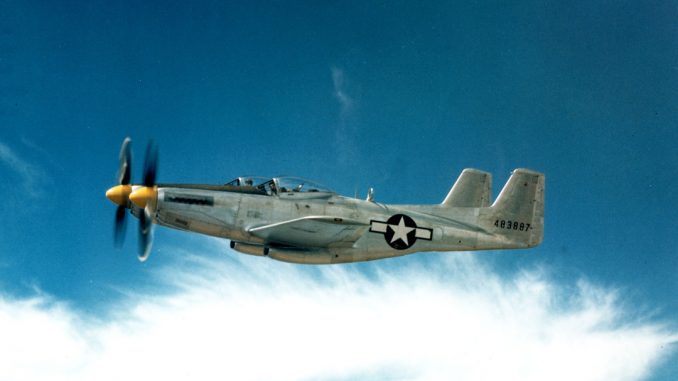
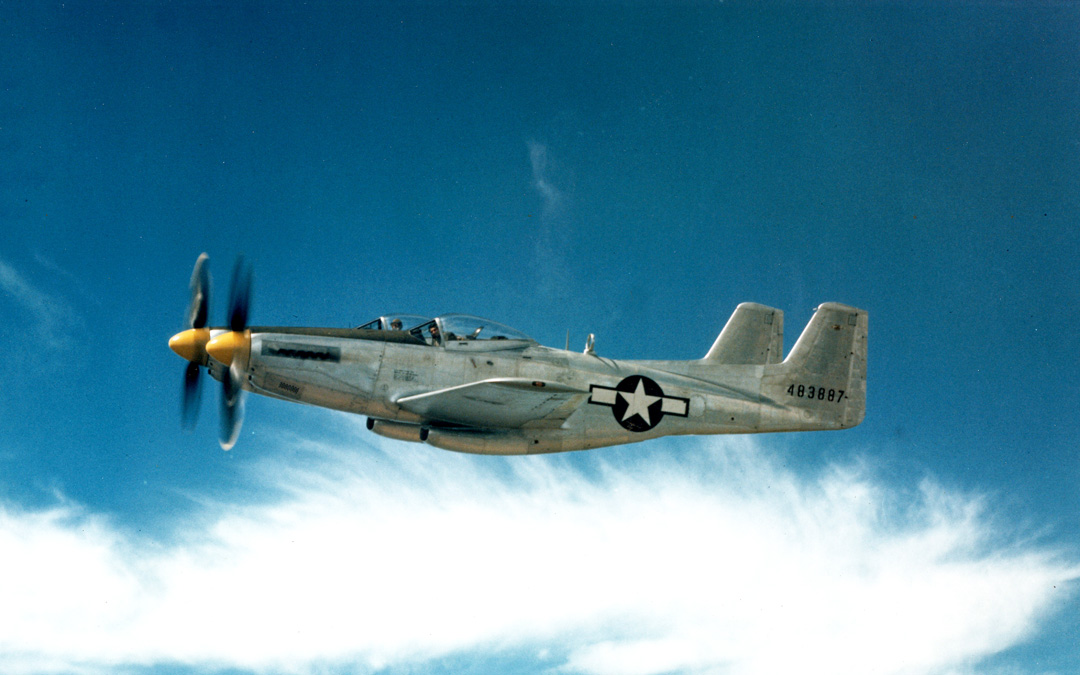
The staff at WarbirdsNews has just returned from an adventurous week at Oshkosh, and hope you understand the quiet of the last few days as we recover from what was a spectacular, if exhausting event. While we recoup our senses, we have just received the latest XP-82 Twin Mustang restoration update from Tom Reilly at his workshop in Douglas, Georgia and thought we would share what they’ve been up to this month!
Wings
Soldering the Cannon plugs connecting the wiring looms to the boost pumps, liquidometers (fuel gauge senders), tip and strobe lights, pitot, remote compass, bomb arming and release and the main 26-pin plug that attaches to the matching center section plug during wing attach and/or removal is now completed on both wings.
The team was able to purchase two new old stock wing tips for P-51H” wings. The H-model outer wings are essentially the same as those for the XP-82, so the wing tip units should fit perfectly.
Within two months, the wings will be attached to the center section for fuel leakage testing and final rigging of ailerons and flaps. The last remaining item on the wings is to sew the fabric gap seals.
Center Section/Guns/Electrical
Four of the six Hughes ammunition feed motors and belting are now installed and attached to each .50 caliber gun. In the center section, the team only has the six 3″ stainless steel machine gun blast tubes and two Hughes ammo drive motor housings remaining to install. These blast tubes attach to the inside of the formed leading edge gun ports and back to the aft part of each cooling jacket.
All of the wiring is now completed to the boost pumps, fuel shut-off and cross-feed valves and liquidometers.
All of the wiring from the center section gear switches to each main and tail undercarriage unit is now run, and awaiting final hookup and function tests during gear retractions.
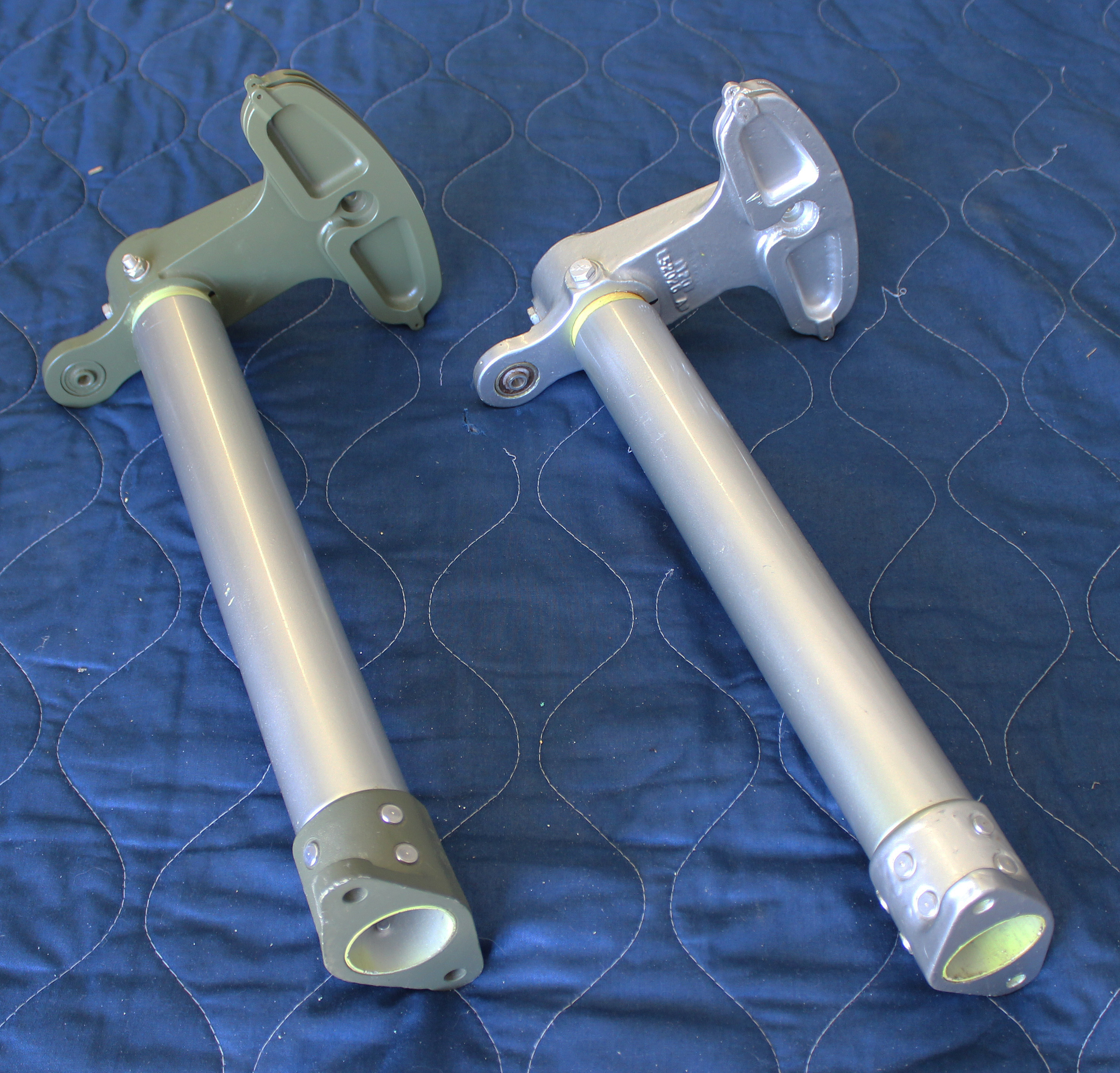
Tail Gear
The two tail cable steering sectors are now attached to their vertical pivot tubes, awaiting the two top steering arms from one of the contract machine shops. When these two top arms arrive, the team will finally be able to complete the last of the tail wheel steering and retract mechanisms. This leaves only the four tail wheel doors and hinge brackets to complete.
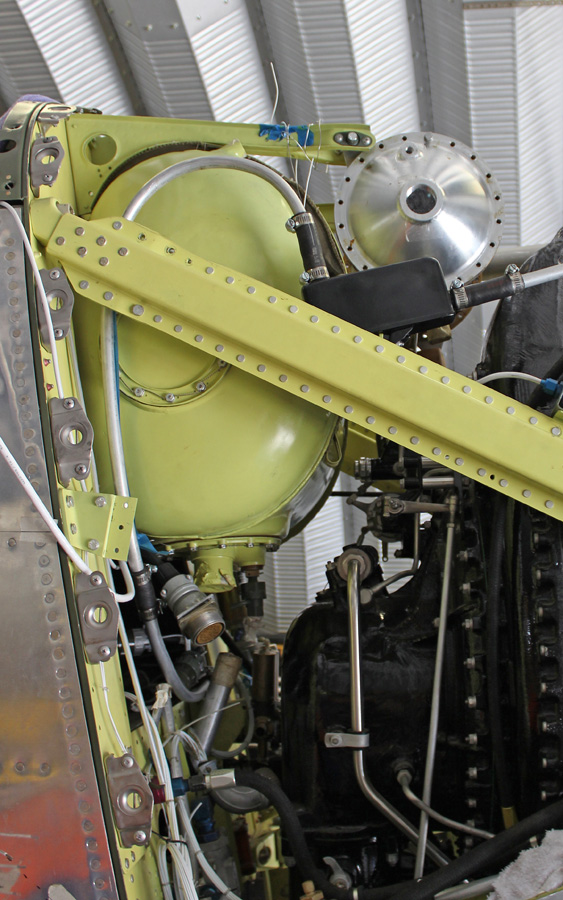
Firewall Forwards
Reilly’s team has temporarily installed one oil tank and one heat exchanger, both cellophane dust sealed in the left-hand engine compartment to prove the alignment and fit of all the oil and Gycol lines. All of these lines are now final-fit and installed with the exception of one oil return line from each engine back to each heat exchanger (oil cooler).
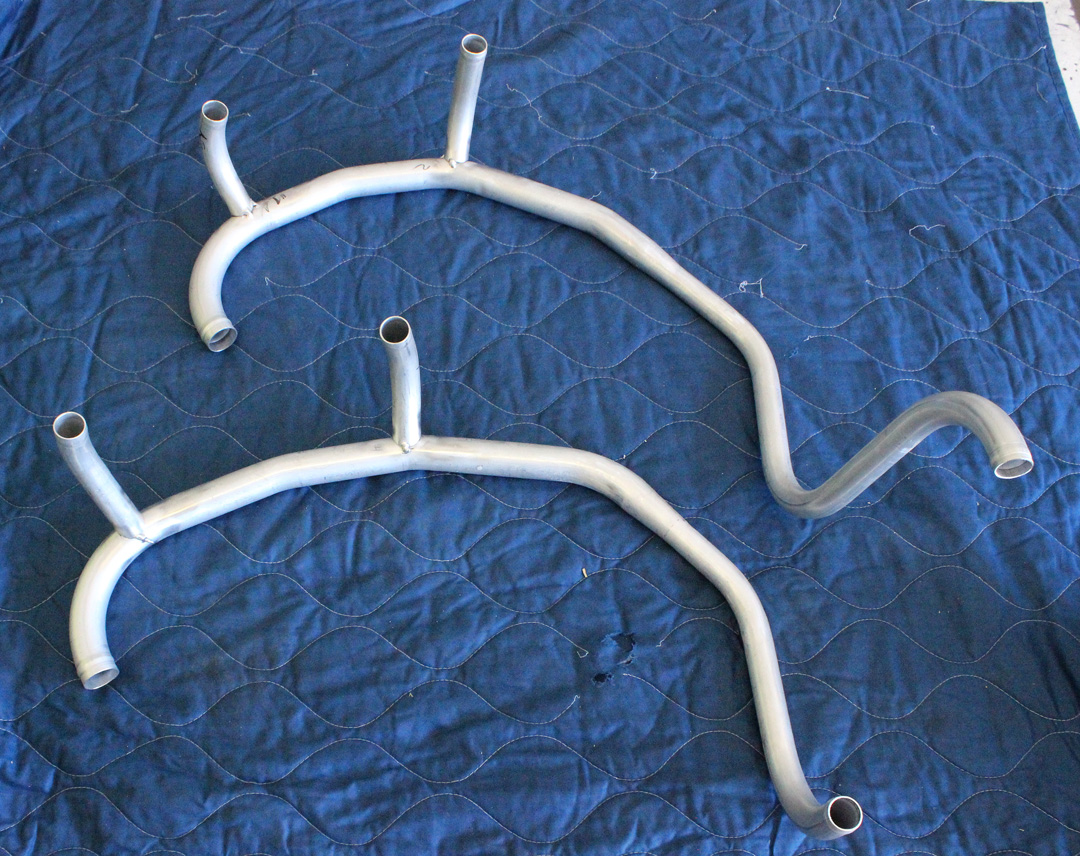
Oil Vent Lines
Both oil vent line assemblies have now been mandrel formed around the nose reduction case of each engine. Each oil vent exits out the side of each engine mount at approximately the same place as in the P-51. They will go to the professional welder next week for him to weld the four valve-cover adjoining-breather pipes to each tube.
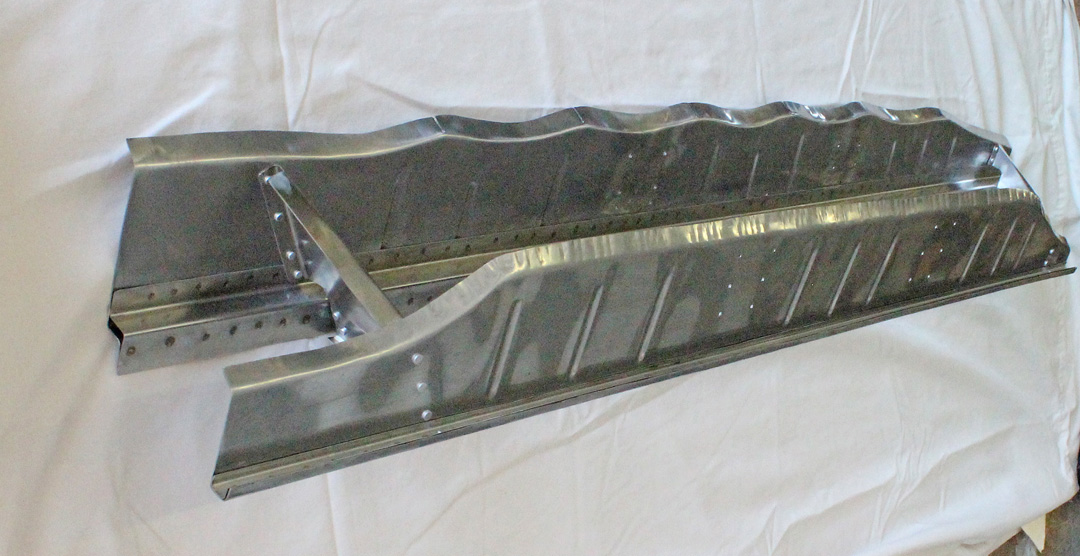
Exhaust Fairings
Two team members have been working for two weeks completing the two exhaust fairings needed for the right-hand engine. Both of these have been pretty time consuming assemblies manufactured out of stainless steel. Each has a substantial number of reinforcement pressings, hat channels and unique shapes to fit around each exhaust stack (six) on each side of the engine. Each stainless assembly, with all of its individual parts, had to be spot-welded together. All that is left is to Yoder-hammer and English-wheel form each outside skin which, when completed, will be spot-welded to the inside of the fairing housing.
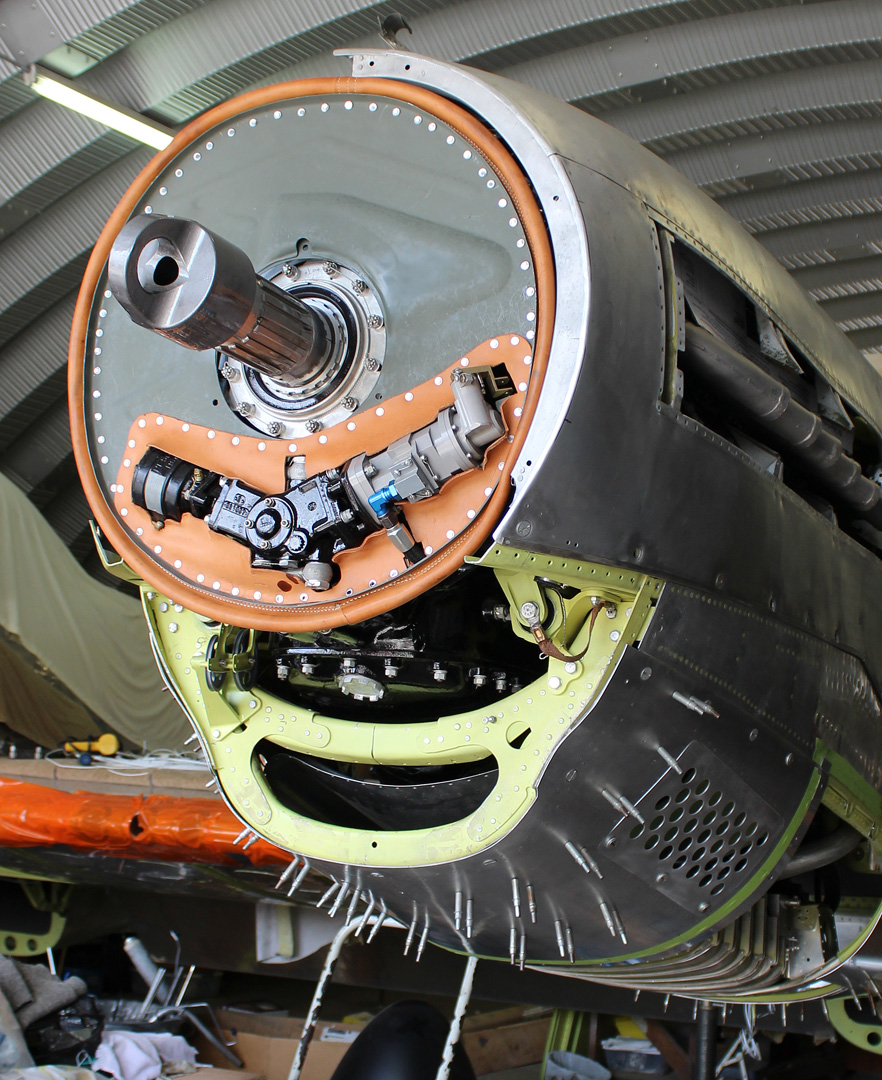
Cowling Dishpans (just aft of the spinner backing plate)
Both of these press-formed dishpans are now completed with the leather air seals that prevent airflow entering from behind the prop spinner into each engine compartment. These leather seals tuck tightly around each vacuum pump and governor. Each one of these dishpans also has a round leather bead that has been soft riveted around the outside circumference of each pan as a seal against the forward cowling rib.
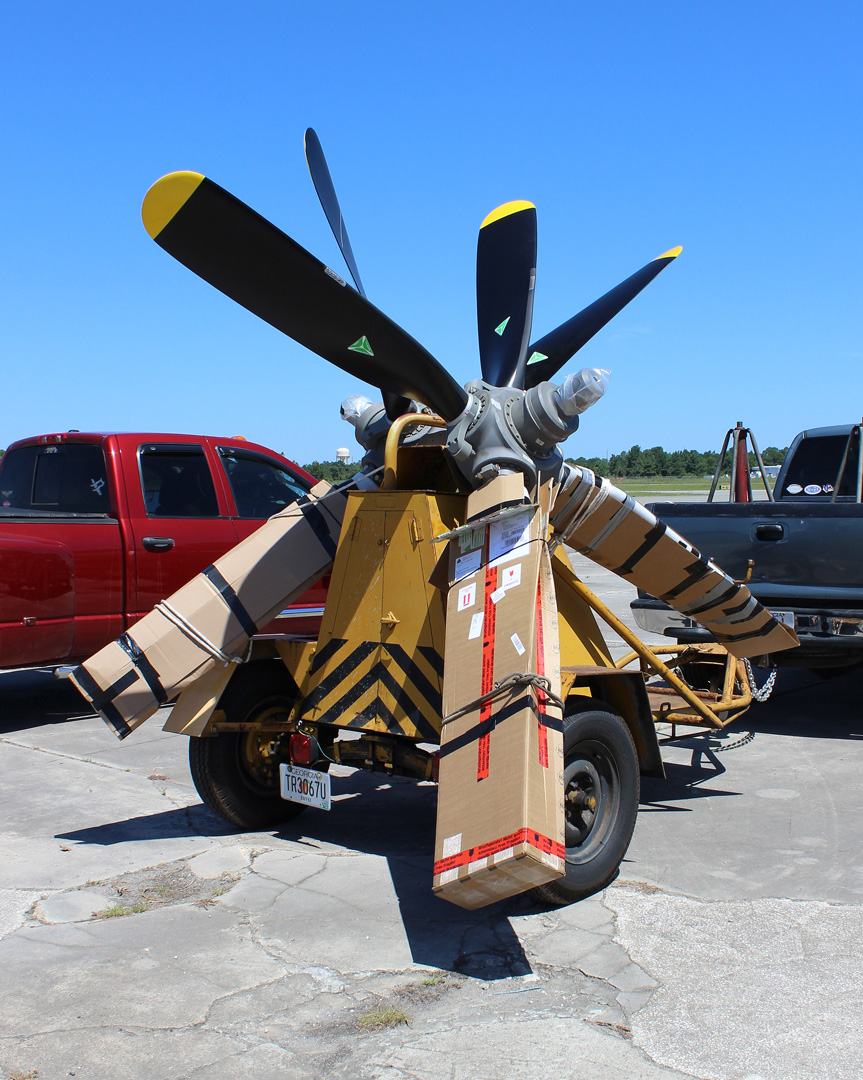
Propellers
MT Propeller has completed the final assembly of the two four-bladed propellers at their US base of operations in DeLand, Florida. Both of these propellers were shipped from Germany and delivered to the team approximately four years ago. Due to federal requirements (Germany and the United States), the propeller boxes and contents, inside and out, had to be sprayed with some sort of anti-fungal chemical. A small amount of this spray chemical made it through a small section of the bubble wrap and sealing papers in a few places and created some small spots on the hubs. When the team returned the propellers back to DeLand for final assembly a year ago, Gerd Muehlbauer, President of MT Propeller, looked at them and rejected the two hubs and the eight blades, boxed them up and shipped them back to Germany for complete disassembly, inspection and re-plating. This speaks volumes for the outstanding quality control that MT Propeller insists upon with all of their propellers. Both propellers were assembled by MT and trailered back to Douglas, GA, awaiting installation on the XP-82 engines within about two months.
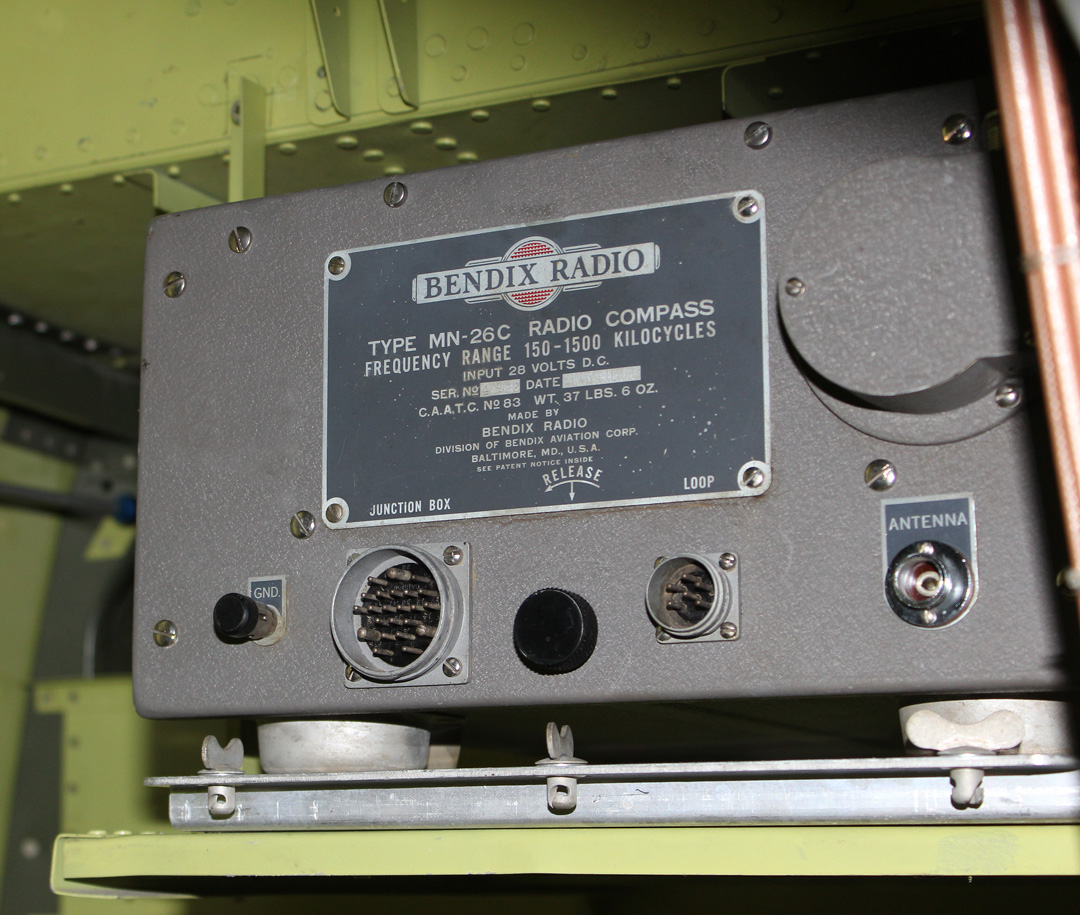
Original Radios
One of Tom Reilly’s employees, whose hobby is restoring WWII gun turrets and antique radios, has found almost all of the original XP-82 remotely mounted radios. All were brand new and in perfect condition, including their wiring plugs which are items that are normally impossible to find. The aircraft is still missing one transmitter/receiver unit and one interphone amplifier to complete the original radio/avionics package.
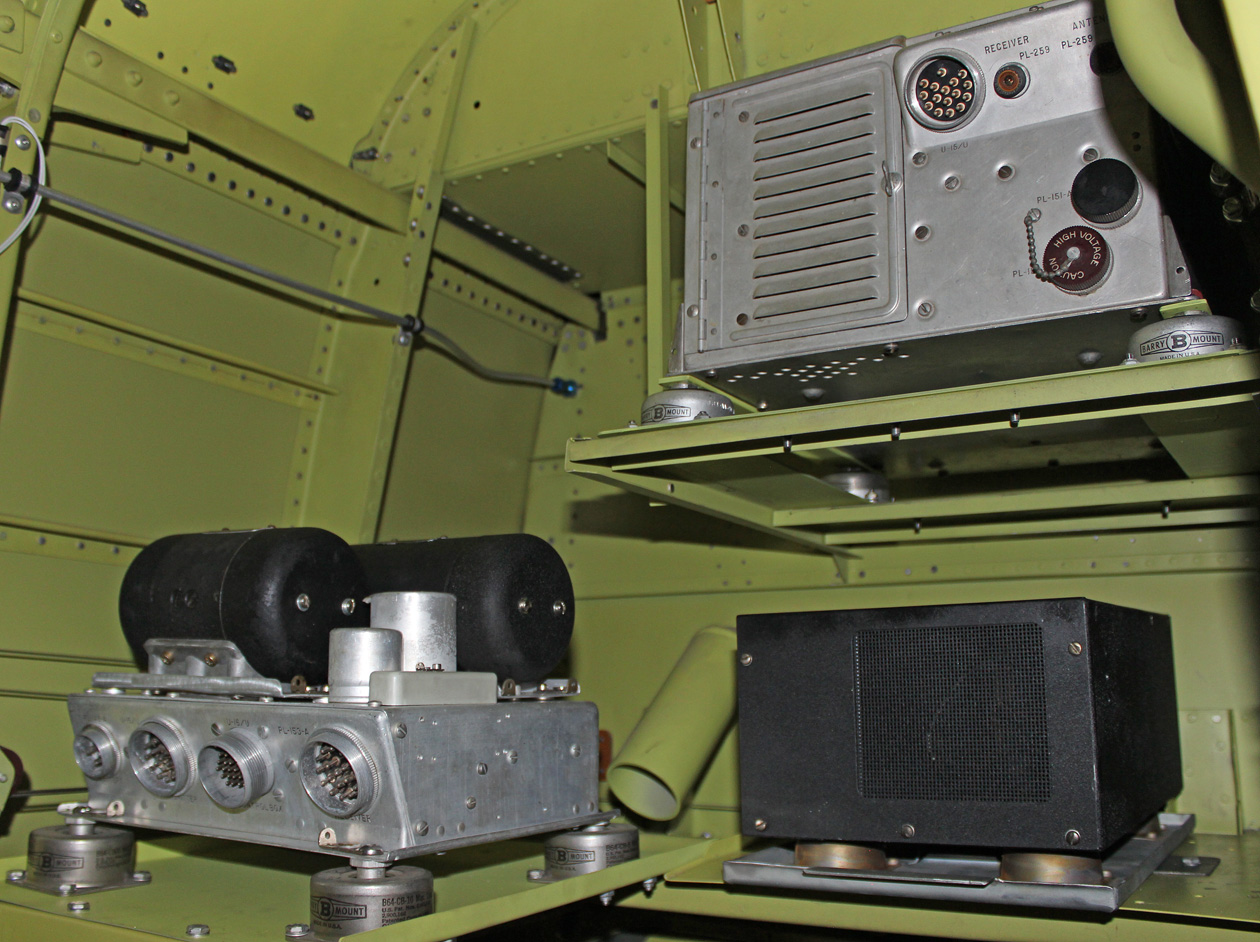
The magnificent find of these original radios will add to the originality and ensure that the XP-82 goes back together as authentically as it was when it came out of the factory and first flew on April 15th, 1945.
And that’s all of the news for July, 2016!
———————————-
Many thanks again to Tom Reilly for the update! You can learn more about the project on their blog HERE. Please be sure to check back with WarbirdsNews in September for the next installment in the story following the XP-82′s road to recovery!
Related Articles
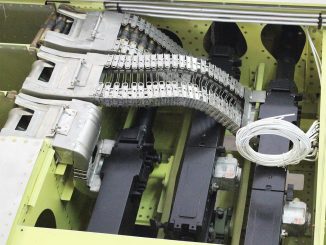
XP-82 Twin Mustang – June 2016 – Restoration Update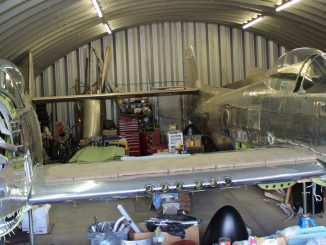
XP-82 Twin Mustang – May 2016 – Restoration Update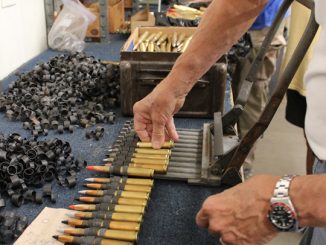
XP-82 Twin Mustang – April 2016 – Restoration Update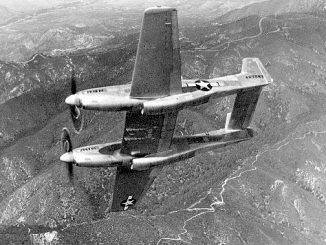
XP-82 Twin Mustang – March 2016 – Restoration Update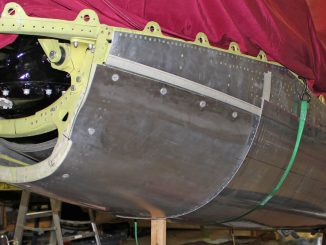
XP-82 Twin Mustang – February 2016 – Restoration Update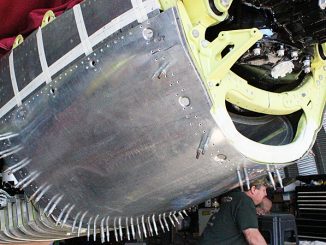
XP-82 Twin Mustang – January 2016 – Restoration Update
Richard Mallory Allnutt's aviation passion ignited at the 1974 Farnborough Airshow. Raised in 1970s Britain, he was immersed in WWII aviation lore. Moving to Washington DC, he frequented the Smithsonian’s National Air & Space Museum, meeting aviation legends.
After grad school, Richard worked for Lockheed-Martin but stayed devoted to aviation, volunteering at museums and honing his photography skills. In 2013, he became the founding editor of Warbirds News, now Vintage Aviation News. With around 800 articles written, he focuses on supporting grassroots aviation groups.
Richard values the connections made in the aviation community and is proud to help grow Vintage Aviation News.


Totally fantastic what you chaps have accomplished with this aircraft. I have been amazed at how you have overcome every problem thrown at you. The dedication and skill you have shown must be an inspiration to everyone taking on a restoration of any kind. Really a magnificient job and I look forward to every episode on the way. I hope you bring out a video on the project.